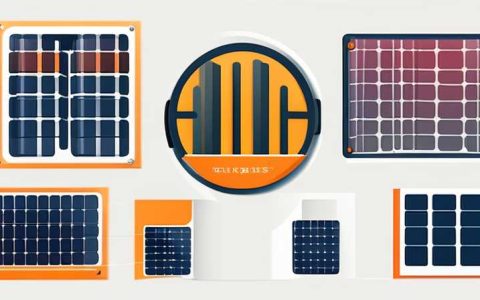
Solar scale inhibitors are essential in maintaining the efficiency and longevity of solar thermal systems. 1. They prevent the accumulation of mineral deposits, thereby improving heat transfer efficiency, 2. which reduces maintenance costs significantly, 3. contributing to sustainable energy use by maximizing system performance. 4. Choosing the right type of inhibitor is crucial for specific water conditions, ensuring optimal operation, 5. ultimately leading to better energy yields over the system’s lifetime.
1. INTRODUCTION TO SOLAR SCALE INHIBITORS
The integration of solar energy into various applications has surged in popularity due to its environmental benefits and the increasing efficiency of solar thermal systems. However, one significant challenge that these systems face is the formation of scale, primarily caused by the mineral deposits that precipitate out of water used in heat exchange processes. To combat this issue, solar scale inhibitors have emerged as vital tools that not only prevent the buildup of these deposits but also enhance the overall efficiency of solar collectors.
The thermal efficiency of solar systems is often hindered by scale formation, which can affect the heat transfer properties of the working fluid. Solar scale inhibitors function by altering the characteristics of the water, making it less likely for minerals to precipitate and form solid deposits. By employing such inhibitors, the lifespan of equipment can be extended, maintenance efforts can be reduced, and operational costs can be lowered.
2. THE IMPORTANCE OF SOLAR SCALE INHIBITORS
2.1 Efficiency Maintenance
A primary role of solar scale inhibitors is to maintain efficiency levels in solar thermal systems. Scaling can lead to significant losses in thermal performance, resulting in reduced energy capture and decreased overall system effectiveness. When minerals such as calcium and magnesium precipitate, they accumulate on surfaces within the heat exchanger, forming what is commonly referred to as scale. This layer acts as an insulating barrier that hampers heat transfer, ultimately leading to less energy being converted into usable heat.
The use of scale inhibitors effectively combats this issue by dispersing the minerals in the fluid, thereby preventing them from settling on critical components. This dispersion is particularly important during high-temperature operations, which are commonplace in solar thermal applications. When inhibitors are utilized correctly, systems can operate at optimal efficiency, ensuring that energy production remains reliable and cost-effective.
2.2 Economic Advantages
The economic implications of using solar scale inhibitors extend beyond initial savings on equipment and installation costs. Over time, the investment in appropriate inhibitors can lead to substantial reductions in operational and maintenance costs associated with scale-related issues. Routine maintenance can be both time-consuming and expensive. By minimizing the need for frequent system cleaning or component replacements, scale inhibitors enhance the financial viability of solar projects.
Additionally, maintaining higher efficiency levels not only contributes to consistent energy production but also maximizes return on investment. In markets where energy prices fluctuate, ensuring optimal performance through the use of scale inhibitors can shield solar operators from economic volatility. This financial stability encourages further investments in solar technology, facilitating the growth of renewable energy infrastructures.
3. TYPES OF SOLAR SCALE INHIBITORS
3.1 Chemical Inhibitors
The market offers a variety of efficient chemical inhibitors, each designed to target specific types of scale and operate optimally under certain conditions. Chemical inhibitors can either be organic or inorganic compounds, with each type exhibiting unique mechanisms of action that suit different applications. For instance, polyphosphates are commonly employed to stabilize calcium ions in solution, thereby preventing them from precipitating as scale.
Using chemical inhibitors requires careful attention to the specific conditions of the system, such as water chemistry and temperature ranges. Improper selection can lead to inefficiency or even exacerbate scaling issues. Therefore, water quality tests must be conducted to determine the most appropriate type of inhibitor for each specific installation scenario.
3.2 Non-Chemical Inhibitors
Alternative methods for preventing scale formation involve the use of non-chemical solutions. These technologies often rely on electromagnetic fields, ultrasonics, or mechanical devices that alter the physical properties of water to inhibit scale formation. Non-chemical inhibitors are especially appealing for environmentally conscious users who prefer to limit the introduction of chemicals into their systems.
Such solutions can be implemented without the need for chemical handling, reducing environmental risks related to chemical spills and introducing complex handling processes. While non-chemical systems may require an initial investment, they often lead to lower operational costs over time. The effectiveness of these systems can, however, depend significantly on water quality, hence thorough evaluation is necessary prior to implementation.
4. COMPARATIVE ANALYSIS OF SCALE INHIBITORS
When evaluating scale inhibitors, it’s crucial to compare their effectiveness based on key performance indicators such as scalability, compatibility with existing systems, environmental impact, and longevity. Chemical inhibitors generally provide immediate and pronounced results but may pose risks related to toxicity and environmental regulations. In contrast, non-chemical options might offer a safer long-term approach but could require longer periods to effectively inhibit scale.
Furthermore, the decision to utilize one type over another often depends on individual project needs and local water conditions. For example, areas with harder water may benefit more from robust chemical inhibitors, while regions that prioritize eco-friendliness could lean towards non-chemical methods.
It is essential to conduct rigorous testing and analysis to determine which system will provide the best overall advantage for a given solar application. Ultimately, the goal remains the same: maximizing energy extraction while minimizing operational challenges and environmental impacts.
FREQUENTLY ASKED QUESTIONS
1. WHAT ARE SOLAR SCALE INHIBITORS?
Solar scale inhibitors are specialized substances added to the water used in solar thermal systems to prevent or reduce the formation of mineral scales. These scales typically consist of calcium, magnesium, and other minerals that precipitate out of hard water as it heats up. By using scale inhibitors, solar systems can maintain higher efficiency levels, extend equipment longevity, and reduce the frequency of maintenance. Inhibitors work by altering the physical or chemical properties of the water, making it less conducive to the formation of scale. They come in various forms, including chemical solutions and non-chemical technologies such as electromagnetic systems. Choosing the right type of inhibitor is crucial depending on water chemistry and system specifications.
2. HOW DO SCALE INHIBITORS IMPACT SYSTEM PERFORMANCE?
The presence of scale inhibitors significantly enhances the performance of solar thermal systems by maintaining optimal heat transfer rates. When scale accumulates within a heat exchanger, it acts as an insulating layer that impedes the efficient flow of heat, ultimately reducing energy capture and increasing operational costs. By preventing scale formation, inhibitors ensure that systems can extract as much energy as possible from the sun, which is especially critical in high-temperature applications. Research has shown that systems using effective scale inhibitors can operate at up to 10% higher efficiency compared to those without them. Additionally, reducing scaling minimizes the need for cleaning, allowing systems to operate more consistently and reducing downtime.
3. WHAT FACTORS SHOULD I CONSIDER WHEN CHOOSING A SCALE INHIBITOR?
When selecting a solar scale inhibitor, several factors must be considered to ensure optimal performance and compatibility with the system. First, the chemical composition of the water must be analyzed, including hardness levels and the presence of particular minerals. This is vital for determining which type of inhibitor will be most effective. Next, potential environmental impacts should be assessed, as some chemical inhibitors can pose risks if not managed properly. Additionally, the system’s operational conditions, such as temperatures and pressure levels, can influence the performance of specific inhibitors. Finally, long-term cost effectiveness should be evaluated, not only in terms of initial investment but also regarding operational efficiency and maintenance needs over the system’s lifespan.
Effective utilization of solar scale inhibitors plays a pivotal role in ensuring the sustainability and efficiency of solar thermal energy systems. By preventing the adverse effects of scaling, these inhibitors extend equipment life, enhance energy capture, and ultimately contribute to a more sustainable energy future. Understanding water chemistry, selecting appropriate inhibitors, and employing best practices will guide users in maintaining optimal system performance and achieving significant financial savings. As technology progresses and solutions become more sophisticated, the role of scale inhibitors will continue to evolve, paving the way for improved solar thermal applications. Exploring both chemical and non-chemical options, along with their potential environmental impacts, is fundamental to developing a robust strategy that aligns with local conditions and personal preferences. In a world increasingly inclined towards renewable energy, ensuring that solar thermal systems operate at their finest is not merely advantageous, but critical for advancing the shift to sustainable energy solutions.
Original article by NenPower, If reposted, please credit the source: https://nenpower.com/blog/how-about-solar-scale-inhibitor/











